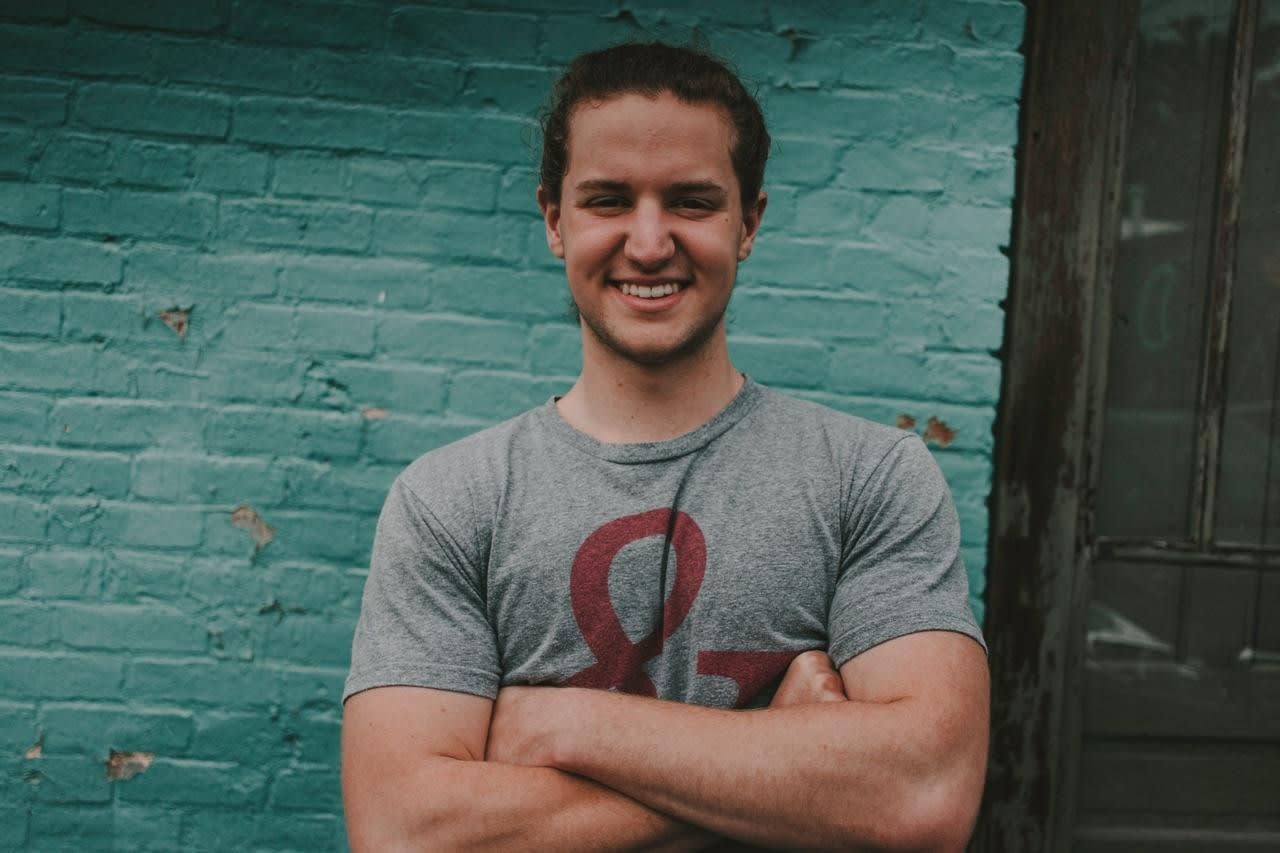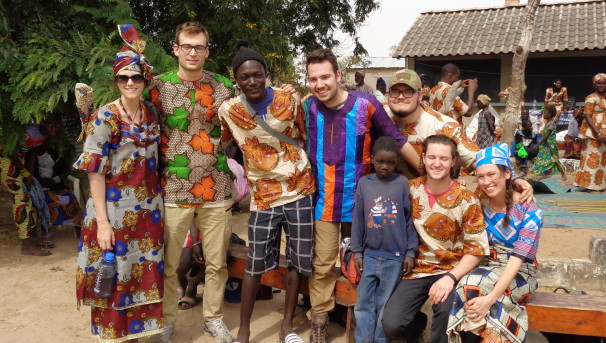We still need your help!
This month, we are continuing our journey to raise $13,000 to help implement a new solar-powered water system, along with other improvements, in the village Njau located in the West African country of Gambia.
These improvements will help create a more reliable water system, which currently causes the community to go days without access to drinking water or ability to irrigate crops.
Your contribution will help us purchase materials and hire local labor in order to make the changes a reality. Last year, we raised $8,625 and we will need to raise the remaining $4,375, we can't do this without your help.
We have created a new page to help make up the difference. You can visit and donate to our new page here.
Any gift, no matter the size is going to help us reach our goal. We need your help in making a sustainable change for a community in desperate need!
Our Second Home
There are only 2 days left in our campaign and we have raised $4,928! We are extremely grateful and excited about the possibilities that these funds represent. Even if you have already donated, you can still help us make a strong push to the end of our campaign by taking a few minutes to share our cause on social media using the links below.
We encourage you to share about our project and the amazing people we are working with. The people of Njau have truly inspired us with their kindness and hope. During our first two trips to the Gambia, we were able to learn a great deal about the community and the people’s daily lives.
The village is located in the desert region of central Gambia and is home to about 2,000 people. It is a 6 hour drive from Banjul, the nation’s capital. The primary languages in the area are Wolof and Pulaar, but English is fairly common because it is the national language.
The people of Njau sustain themselves through livestock and the crops grown in their fields. These sources are often not sufficient, so some family members travel to the city and send money back from jobs that they work.
It is primarily the responsibility of the women to maintain the crops in the field. They often spend upwards of 8 hours a day walking back and forth to the nearest water source, a 15 minute trip each way. These efforts have not produced enough crops to sell any for profit in the past 5 years because of the lack of water for irrigation. Our goal is to make everyday life easier for these women and create the opportunity for them to make an income for their families.
The children attend school where they learn English and other subjects with hopes of attending university some day. Unfortunately, their library is very old and is not a good study space for the students. Our organization has identified an improvement of this library as a potential project if our relationship continues past the current 5 year commitment.
Your donation will play a big role in bringing the community’s vision for the future into reality. The incredible support we have received over the past month has brought us closer to implementing our project and bringing hope to the people of Njau.



Our Dedicated Members
Our organization is extremely grateful for the support we have received from you so far! We have raised $3,163 of the remaining $13,000 we need to implement our project. This support has brought us closer to gaining valuable real-world project experience and making a difference in the lives of the people in Njau.
None of our work would be possible without the dedication of the roughly 50 students who are involved with our organization in some way. They have taken the initiative to reach their potential through practice of engineering principles while also doing good for others. Your support is essential to an enriching college experience for these students. Below are profiles of a few of the bright minds that make up our organization.
Frank Keller III
4th Year in Civil Engineering from Cincinnati, OH
What does Engineers Without Borders mean to you?
Most engineers in the world design for and help just 10% of the world. EWB is an engineering organization dedicated to helping the other 90%. EWB challenges you as a person to look around the globe and see how other people struggle with things we take for granted everyday, such as having enough water. I dedicate myself to EWB because it allows me to use what I learn in my engineering curriculum to help others. Through EWB I have made countless connections, friends, met some wonderful people from around the globe, and worked with amazing mentors and colleagues. EWB has changed my life for the better and I encourage anyone I can to support us.
What is your favorite memory of your involvement in our club?
My favorite EWB memory is from our Gambia assessment trip in December 2016. On our trip to the village of Njau, I made four great friends. I like to call them my Gambian brothers since they and the village took us in like family. Their names were Modo, Demba, Yusupha, and Wassa. These four people helped our team during the trip by being guides, translators, and by assisting us in data assessments. My favorite memories are of the mornings the five of us drank tea and listened to rap music on Yusupha’s Bluetooth speaker. It was awesome because I connected my phone to the speaker and showed them music they had never heard before. I introduced them to Wu-Tang Clan, Chance The Rapper, and Kendrick Lamar, which they really liked. It was just a few mornings of sitting around, listening to music, drinking tea, and talking about different things such as sports and our favorite teams. It’s definitely my favorite EWB related memory.
Nicole Dirando
5th year student in Chemical Engineering from Cleveland, Ohio
What does Engineers Without Borders mean to you?
EWB is a way for me to use my engineering skills to make a real life difference to someone in need; besides the typical cost reduction or profit increase typical engineers work on at a company.
What is your favorite memory of your involvement in our club?
My favorite EWB memory is when we were travelling back from the Dominican Republic and we almost missed our connecting flight coming home. We had to run with all our stuff from one airplane to the next and also go through customs. We actually lost a mentor behind. Although it was stressful, it made for a good memory and laughs at how close our connecting flight was, and how much of a "movie" scenario it was.
Hayden Clark
2nd year student in Electrical Engineering from Beavercreek, Ohio
What does Engineers Without Borders mean to you?
EWB is a way for me to use my Engineering skills for the betterment of others!
What is your favorite memory of your involvement in our club?
Getting to travel with EWB in the winter of 2016 was a dream come true! Not only did it open my eyes to the reality of the humanitarian situation abroad, it also showed me where my place within that dynamic is, and how I can serve those around me through our organization.



Our Inspiring Partners
Our project in Njau would not be possible without our partner organization, Women’s Initiative Gambia (WIG). They are a group dedicated to helping disenfranchised women in Gambia increase their income and standard of living. They coordinate projects in rural areas that empower women by providing financial training and giving them a voice in their community.
One project that has gained worldwide recognition is the One Plastic Bag project. The project takes plastic grocery bags that are littered across the community and turns them into purses. The women have started a business selling the purses, which provides income for families while reducing the waste problem in the area. The project has made an impact in the village of Njau by saving livestock, decreasing the spread of disease, and improving soil quality. The profits from the one plastic bag initiative have funded the implementation of a skills center in the village where many women and girls learn to read and write.
The founder of One Plastic Bag and WIG is an amazing woman named Isatou Ceesay. She has been empowering women and advocating to end plastic waste for over 17 years. She first started the recycling center of Njau in 1997 to educate the villagers on the importance of recycling. In Gambian culture, women are expected to raise children, cook, clean, and care for crops while waiting on their husbands to come home from work. Isatou wanted to turn these expectations upside down and bring women the freedom of financial independence. This mission led to her founding Women's Initiative of The Gambia. The organization now has over 2000 members in over 40 communities and is collaborating with the European Union and United Nations.
Isatou Ceesay has played a large part in forming our partnership with the people of Njau, and we have learned a great deal from her and her colleagues. Our project will support Isatou’s mission by reducing the time women spend gathering water and tending to crops, leaving more time to generate income. To learn more about the organization and Isatou’s award winning children’s book One Plastic Bag, visit http://oneplasticbag.com/.

Learning by Doing
Thank you all for your interest and support of our campaign! We have raised $1,966 so far which is 15% of the $13,000 we need to implement our project. These donations are bringing us closer to improving the well-being of the people of Njau and making our designs into a reality.
The execution of the project will require multiple trips to the Gambia in order to oversee the construction. As we’ve mentioned, our club has sent two groups to the community over the past year and a half. These trips have allowed us to build a shared vision with the members of the community and gather the necessary data to create technical designs.
The students who traveled to the Gambia on behalf of our club practiced engineering in the real world and built lifelong friendships with the people of Njau. This deep engagement with a culture so different from our own was a priceless educational experience. One of the most profound characteristics of the people in the Gambia was their generosity. Sierra, our fundraising chair, wrote about one conversation she had with a Peace Corps member from the Gambia:
We went on to discuss misconceptions Africans have of Americans and vice versa. One interesting misconception about America is that there are no homeless people. The travel team tried to explain that homelessness is a large issue in America, but it was difficult for the peace corp member to grasp. Only when Isatou, who has lived in the US, said she has seen it were we able to convince him. The reason it was hard to grasp was that in Gambia when you have extra, you share. Extra food is given to people who have little or none and if you need a place to stay one will be provided. Community is such an important part of this culture that people rarely slip through the cracks.
Another experience showed the importance of long term commitments and community involvement in humanitarian engineering projects. Sierra had a conversation with a community leader after they finished mending a broken water tap. She writes:
Later that day, the man in charge of turning the flow on and off returned to the community so we had a chance to interview him and learn about the system. This conversation brought up an issue of charity work around the world, which is the lack of focus on sustainability. The company that installed the system didn’t train anyone on how to maintain it or how it worked. When one of the parts broke, it took the company a month to get out to the system and once it was fixed, they left without telling anyone what they did.
Your contributions allow our student members to learn invaluable lessons like these that come with executing a project and engaging with the people of the Gambia. We want to extend our deepest gratitude for your continued support!

$6
Buckeyes Giving Back
Sending the 6 students on each trip to have a life changing experience.
$13.15
Doing Good Across the Globe
Improve the lives of the people living at 13 degrees North and 15 degrees West.
$23
Improving Infrastructure
Help to renovate the 23 water sources in the community including water taps, wells, and hand pumps.
$120
Providing Relief
In the heat of the dry season, temperatures can reach up to 120 degrees Fahrenheit.
$500
A Brighter Future
Contribute to creating a better future for the children of Njau
$2,000
For all of Njau
Provide a richer quality of life for the 2000 people who live in Njau.





